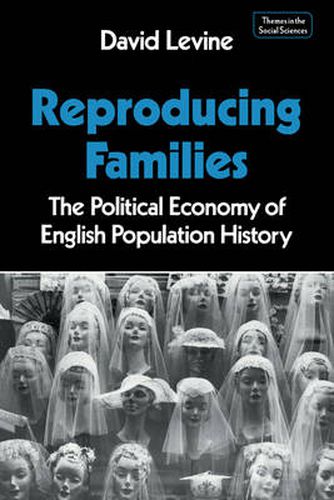Readings Newsletter
Become a Readings Member to make your shopping experience even easier.
Sign in or sign up for free!
You’re not far away from qualifying for FREE standard shipping within Australia
You’ve qualified for FREE standard shipping within Australia
The cart is loading…






Reviewing the course of English population history from 1066 to the eighties, this book challenges orthodoxies about the evolution of English family forms, and offers a bold interpretation of the inter-connections between social, economic, demographic and family history. Taking as the point of departure the well-known observations that England was the first industrial society, that it was the first society to have its peasantry replaced by proletarians and that it was a society that was always dominated by nuclear family households, the main question David Levine asks is how these elements were connected in time and space. In answering this, he looks to contemporaneous changes in the labour process, and, in particular, to the disposition of labour within the family. His central theme is the impact of proletarianisation on family formation. He argues that the explosive transformations of family and demography that occurred between 1780 and 1815 were the culmination of a protracted transition from a feudal to a capitalist social structure; and that the post-1870 decline in marital fertility took place within a context of demographic, familial, social and political adjustments which were themselves a response to the earlier population explosion.
$9.00 standard shipping within Australia
FREE standard shipping within Australia for orders over $100.00
Express & International shipping calculated at checkout
Reviewing the course of English population history from 1066 to the eighties, this book challenges orthodoxies about the evolution of English family forms, and offers a bold interpretation of the inter-connections between social, economic, demographic and family history. Taking as the point of departure the well-known observations that England was the first industrial society, that it was the first society to have its peasantry replaced by proletarians and that it was a society that was always dominated by nuclear family households, the main question David Levine asks is how these elements were connected in time and space. In answering this, he looks to contemporaneous changes in the labour process, and, in particular, to the disposition of labour within the family. His central theme is the impact of proletarianisation on family formation. He argues that the explosive transformations of family and demography that occurred between 1780 and 1815 were the culmination of a protracted transition from a feudal to a capitalist social structure; and that the post-1870 decline in marital fertility took place within a context of demographic, familial, social and political adjustments which were themselves a response to the earlier population explosion.